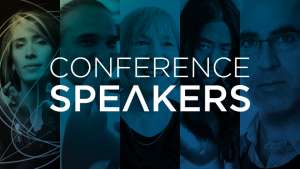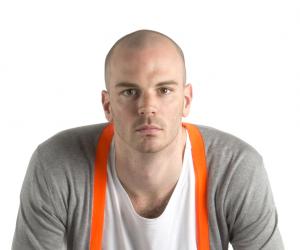From the Series
Thinking beyond financial return or designing an object for the sake of it, award-winning design entrepreneur Benjamin Hubert’s newly established experiential design studio, Layer focuses on designing products that improve the life of the consumer. This year, Hubert will take to the stage at the Design Indaba Festival 2016 in Cape Town to divulge the secrets behind his brand and its ability to influence the way we live, work and communicate.
“Design is a tool for change, it’s a tool to make things easier to make things better, to make things happier and healthier,” says Hubert. “Designers have a responsibility, we’re not just here to create the next nice thing.”
Layer’s designs include the Worldbeing wearable, a personal device that tracks carbon usage, empowering consumers to make better decisions; Scale, the world’s first super-modular stand-alone acoustic system, and Maggie’s Change Box, a new take on the generic charity box, which has become a powerful tool for fundraising.
According to Hubert, his studio is motivated by the idea that each product it creates has a positive impact on its users and the world. “It’s a designers responsibility to also understand what they’re doing and how they can do it better,” he adds.
A designer who becomes complacent and refuses to push the limits of design would not find a home at this progressive studio. “As much as you should be outward looking and understanding the world and the people in it and how we’re living now and next, I think you should also be understanding inwardly,” Hubert explains. “…How you work and how you could work better, smarter, and keep pushing yourself to think outside of the box.”
On his personal design process, Hubert says he starts by considering the opinions of the creatives in his studio. They then question whether the product up for discussion is something that is needed, necessary, has it been done before, and finally, how can it be done differently. The studio is also in constant dialogue with the company they’re designing for whether it’s a huge, global brand like Nike or a small furniture store.
After considering the role of the designer, Hubert also places emphasis on the responsibility of the consumer in a world threatened by climate change and the oversaturation of consumer products. He says the key is to choose responsibly made designs while focusing on what we need rather than what we want.
“We live in the age of super consumerism,” he says. “I think if anybody looked at how many things they have in their life versus how many things they actually use, they’d find that the world is filling up with stuff and I don’t know how much of that stuff we actually need.”
Benjamin Hubert will be speaking at Design Indaba Conference 2016, which takes place from 17 to 19 February 2016. Book here.














